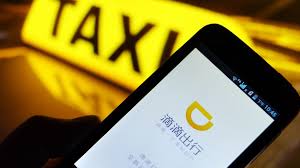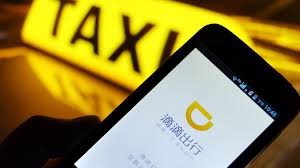
Tighter regulatory oversight on the services of China’s largest ride-hailing company Didi Chuxing could result in longer customer waiting times and reduced driver numbers after a driver of the company was accused of raping and murdering a woman passenger recently. The company had to suspend the service as a result of the incident.
The incident was a second one following a similar incident by a Didi driver in May this year. the incident has triggered public and government outrage and backlash and has given a chance for rival companies to rake over parts of the market share of Didi, say industry analysts.
“There is certainly room for others to serve the market, and such incidents expose an apparent weakness in Didi’s business model: aggressive expansion without adequate control of the integrity of the drivers on their platform,” said Bill Russo, head of Shanghai-based consultancy Automobility Ltd.
Didi founder Cheng Wei and President Jean Liu said in a regret letter: “our vanity overtook our original beliefs.”
According to a Bain report in May, about 90 per cent of the ride hailing market in China is dominated by Didi and the company itself claims that it makes 10 billion trips a year.
There are plans of global expansion by the company which was valued as $56 billion in a fundraising round last year. the company is also preparing for issuing a grand IPO as early as next year. one of the major successes of the company has been the acq1uisition of the China business of rival Uber in 2016.
But all those plans could be required to be halted for the time being by the company. The company was ordered to suspend those drivers without proper operating licenses by the authorities in major cities, including Beijing, Chongqing, Dongguan, Guangzhou and Shanghai. The regulators also ordered Didi to stop new registrations for unqualified drivers according to reports in the local media.
Analysts say that Didi will have to face stricter safety measures and driver screenings. The company claims that even currently, thousands of applications form unqualified drivers are rejected by it every day.
Passenger frustration against the company has been amplified by the popularity of the company in China. After its deal with Uber in 2016, the number of rides per day on Didi’s platform rose to 20 million from 14 million in China.
There can be a Shift in store for Did and the ride hailing industry because of the government imposed sudden regulatory scrutiny since the killing.
“Chinese technology companies have a culture of moving fast and breaking things, and while Didi got a free pass from the regulator for the first incident ... it is unlikely to get off scot-free the second time,” Richard Windsor, a technology analyst, wrote on his Radio Free Mobile blog.
“There are still a large number of drivers and vehicles that do not have the regulatory qualification to operate,” said a report in The Paper, an online news site, reported citing Dongguan transport officials.
The additional problem for Didi is driver discontent with the company facing at least eight strikes in multiple cities by drivers in the last one year according to reports in the local; media.
(Source:www.reuters.com)
The incident was a second one following a similar incident by a Didi driver in May this year. the incident has triggered public and government outrage and backlash and has given a chance for rival companies to rake over parts of the market share of Didi, say industry analysts.
“There is certainly room for others to serve the market, and such incidents expose an apparent weakness in Didi’s business model: aggressive expansion without adequate control of the integrity of the drivers on their platform,” said Bill Russo, head of Shanghai-based consultancy Automobility Ltd.
Didi founder Cheng Wei and President Jean Liu said in a regret letter: “our vanity overtook our original beliefs.”
According to a Bain report in May, about 90 per cent of the ride hailing market in China is dominated by Didi and the company itself claims that it makes 10 billion trips a year.
There are plans of global expansion by the company which was valued as $56 billion in a fundraising round last year. the company is also preparing for issuing a grand IPO as early as next year. one of the major successes of the company has been the acq1uisition of the China business of rival Uber in 2016.
But all those plans could be required to be halted for the time being by the company. The company was ordered to suspend those drivers without proper operating licenses by the authorities in major cities, including Beijing, Chongqing, Dongguan, Guangzhou and Shanghai. The regulators also ordered Didi to stop new registrations for unqualified drivers according to reports in the local media.
Analysts say that Didi will have to face stricter safety measures and driver screenings. The company claims that even currently, thousands of applications form unqualified drivers are rejected by it every day.
Passenger frustration against the company has been amplified by the popularity of the company in China. After its deal with Uber in 2016, the number of rides per day on Didi’s platform rose to 20 million from 14 million in China.
There can be a Shift in store for Did and the ride hailing industry because of the government imposed sudden regulatory scrutiny since the killing.
“Chinese technology companies have a culture of moving fast and breaking things, and while Didi got a free pass from the regulator for the first incident ... it is unlikely to get off scot-free the second time,” Richard Windsor, a technology analyst, wrote on his Radio Free Mobile blog.
“There are still a large number of drivers and vehicles that do not have the regulatory qualification to operate,” said a report in The Paper, an online news site, reported citing Dongguan transport officials.
The additional problem for Didi is driver discontent with the company facing at least eight strikes in multiple cities by drivers in the last one year according to reports in the local; media.
(Source:www.reuters.com)














